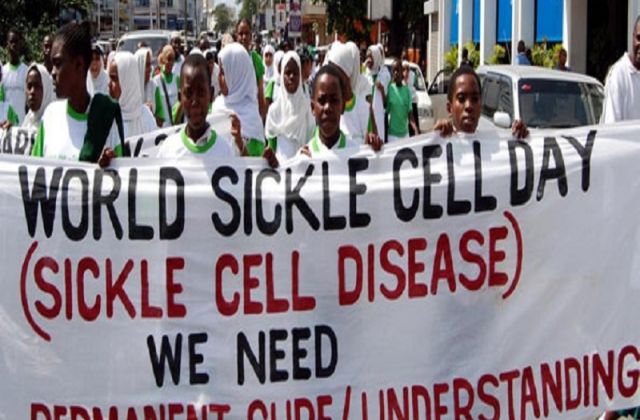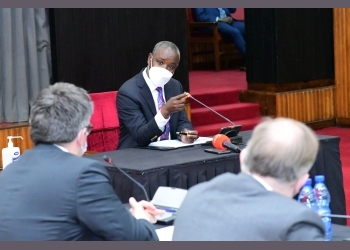
Uganda will on Monday June 20th commemorate the world sickle cell day. According to Dr. Anthony Mbonye, the Director Health Services Clinical and Community health, the national celebrations will be held in Bundibugyo District.
The United Nations General Assembly established the World Sickle Cell Day in 2008 during its 63rd session in order to increase awareness about sickle cell disease, its management and prevention among the public.
It is celebrated every 19th day of June, the day that falls on a Sunday.
According to Dr. Mbonye, the ministry decided to celebrate the day in Bundibugyo because the district is one of the high burden districts with a prevalence of 21.7% of trait and 1.9% of disease.
“Surprisingly, all districts around Bundibugyo apart from Ntoroko with a trait prevalence of 15%, the rest have a prevalence of trait of 10%,” Says Mbonye.
Dr. Mbonye added that; “Bundibugyo has always been known to have a high burden of sickle cell disease, since a study conducted in 1949 put the prevalence of trait among the Bamba in Bundibugyo at 45%. However this study had a small sample size not representative of the country.”
As part of World sickle cell Day events in Bundibugyo, the ministry will conduct a sickle cell match through Bundibugyo town, followed by free sickle cell testing at the celebration grounds and a blood donation drive in support of sickle cell patients who frequently need blood.
About Sickle Cell;
Sickle Cell Disease (SCD) is a serious condition that affects people all over the world; the complications that arise from it are usually fatal. Sickle cell disease is a set of red blood cell disorders that are mostly inherited. In sickle cell disease the red blood cells become tough and sticky and resemble ‘sickles.’
The infected cells perish early which leads to a constant depletion of red blood cells in the blood. Further as the blood moves through blood vessels, these infected cells get stuck to the walls and obstruct the blood flow which leads to more complications.
With good medical care people with sickle cell disease can live into adulthood but with a decreased life expectancy.
Sickle cell disease is common among the African, Asian nations and amongst people who do not have access to proper medical supervision and care. In the United States mainly the African-Americans are affected, with every one in 500 African-American child being affected with the disease.
In Africa nearly 2% of newborns are affected with sickle cell disease. In the United Kingdom more than 200 newborns are infected with sickle cell disease. In the Middle East more than 6000 babies are born annually with sickle cell disease.












